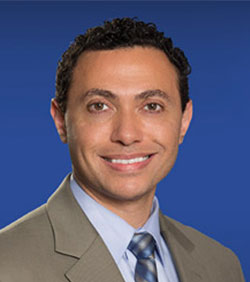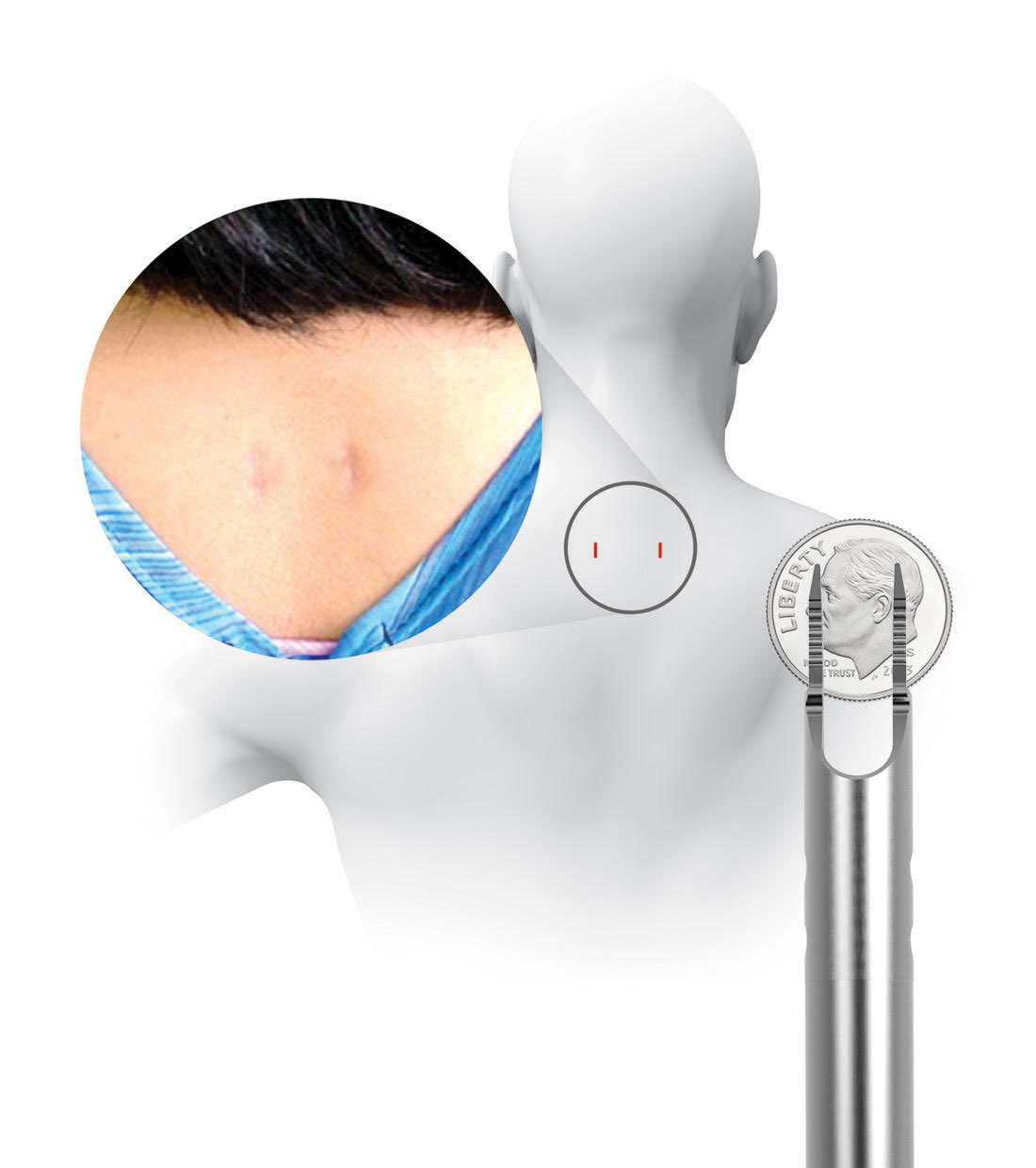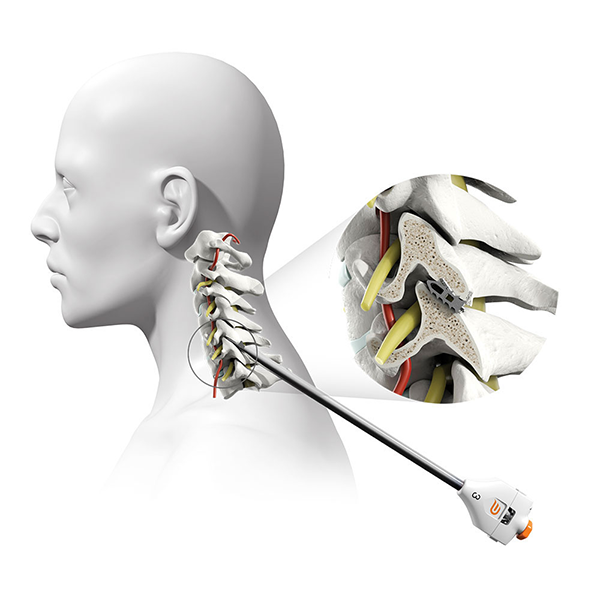Call 833-321-3873 for more information

Considering fusion surgery for your neck?
We invite you to join our official Clinical Study.
Space is limited — Secure your spot today.
You may qualify for this study if you:
Have pain or numbness in your neck, shoulders, arms, or hands
Have not had a previous fusion surgery on your neck
Have Medicare or other medical insurance
Your Benefits:
Innovative Treatment Technology *
Personalized Care from Spine Specialists
Contribute to Medical Research
Participants may Receive Compensation †
About the FUSE Study
This clinical study is evaluating whether the Posterior Cervical Stabilization System (“PCSS”) improves fusion rates for cervical fusion patients when used as part of Circumferential Cervical Fusion.
Study Hypothesis
Patients who receive circumferential fusion with PCSS will have a higher rate of fusion and fewer surgical failures.
Innovative, Investigational Cervical Stabilization System
Posterior Cervical Stabilization System (“PCSS”) is a small metal implant placed in spinal joints on the neck’s back. When used as part of posterior cervical fusion (PCF), PCSS is designed to be used with an ACDF to stabilize the spine, which may improve fusion rates and results.
The technology and procedure are unique because a surgeon uses a small tube about the size of a large straw to place PCSS in the spine.
Are You Eligible?
Call 833-321-3873 or answer 4 simple questions
By submitting this form you agree to our Terms of Use.
We respect your privacy. Privacy Policy
Personalized Care from Spine Specialists & Health Professionals
Receive regular, careful medical attention from a research team that includes spine surgeons and other health professionals at respected medical institutions.
Dr. Daniel K. Fahim, MD
Dr. Daniel K. Fahim is the study investigator and care provider serving the greater Detroit, MI area.
Dr. Fahim is a board-certified & fellowship-trained neurosurgeon with extensive experience in the latest spinal surgery treatments and techniques.
Michigan Head & Spine Institute
29275 Northwestern Hwy #100
Southfield, MI 48034

Dr. Daniel K. Fahim, MD
Contribute to Research of Spinal Therapies & Treatment
By participating in this study, you will be helping to advance the understanding of spinal surgery, which may improve care for future patients.
Receive Compensation for Time & Travel
The study may pay study participants for their time and travel costs. Your doctor will provide payment details.
Get More Information
By submitting this form you agree to our Terms of Use.
We respect your privacy. Privacy Policy
Has this kind of surgery ever been done before this clinical study?
Yes. Both anterior and posterior cervical fusions are commonly performed and considered safe and effective.
Surgeons in the U.S. have used PCSS and similar devices with favorable outcomes and a low device-related complication rate of 3.4%.1
An implant similar to PCSS has been approved and used in Europe for many years.2
The company that designed PCSS conducted a clinical study in the Philippines using a similar implant placed into the same spinal joints.
This study demonstrated:3,4
- A decrease in pain
- Lower Neck Disability Index (NDI) scores — a quality of life scale
- High fusion rate
In a biomechanical study, the combination of ACDF (anterior fusion) and a PCF (posterior fusion) using PCSS significantly increased spinal stability versus ACDF alone.5
Request Study Brochure
By submitting this form you agree to our Terms of Use.
We respect your privacy. Privacy Policy
Learn more at www.fusestudy.com
For detailed information about this cervical fusion clinical study visit: clinicaltrials.gov
Before deciding to participate in the study, please discuss the risks and benefits of this study with your doctor.
CAUTION — PCSS is an investigational device. Limited by federal law to investigational use.

About Providence Medical Technology
Our Purpose is to improve clinical outcomes for high-risk patients and prevent surgical failures of the cervical spine.
Our Mission is to establish Circumferential Cervical Fusion (CCF) as the standard of care for high-risk patients.
3875 Hopyard Rd. Suite 300
Pleasanton, CA 94588
References
1. Siemionow K, et al. (2017) J Craniovertebr Junction Spine.
2. Internal company records of Providence Medical Technology, Inc.
3. McCormack B, et al. (2013) J Neurosurg Spine.
4. Siemionow K, et al. (2016) J Neurol Surg A Cent Eur Neurosurg.
5. Voronov LI, et al. (2016) Medical Devices (Auckl).
Disclaimers
* PCSS is an investigational device. Limited by federal law to investigational use.
† Patients who agree to participate in the study may be compensated for their time and study travel costs. Payment details will be provided by your doctor.
Copyright © 2021, Providence Medical Technology. All rights reserved.

